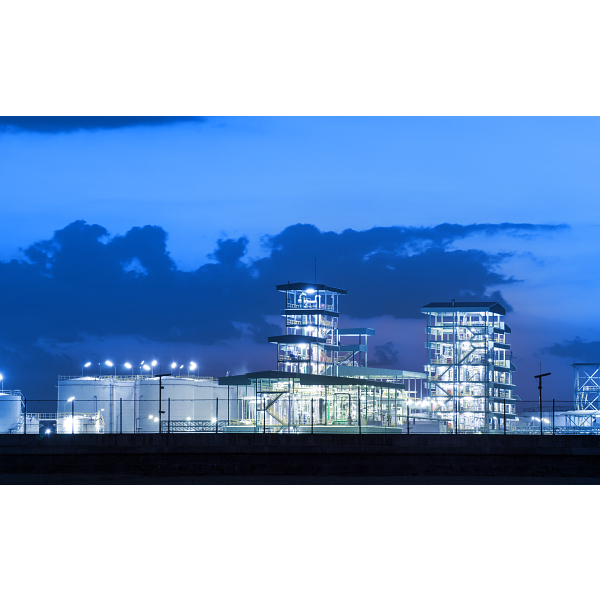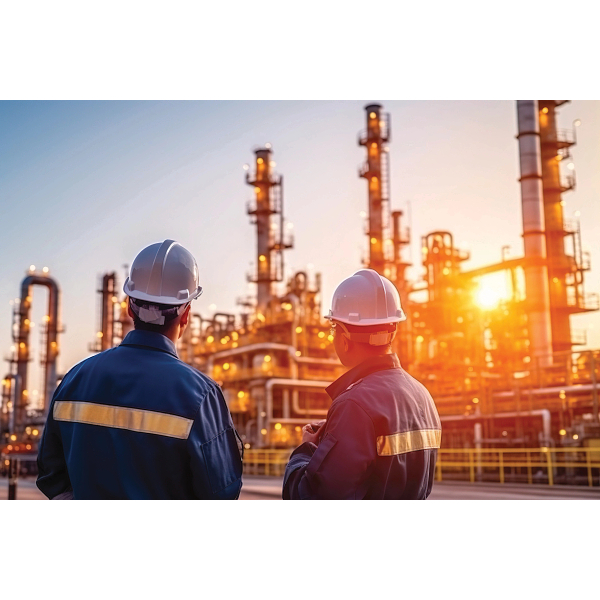How Industrial Companies Can Meet Stricter European Environmental Regulations
European Union (EU) nations are looking to industrial energy users as crucial partners to reach their net-zero objectives by 2050. Those countries are adopting a wide range of policies and laws to target the carbon and energy footprints of companies — especially those whose facilities operate industrial pumps.
Why? Because pumping systems can consume up to 50% of the electricity used in plant processes.
Since this energy consumption is scattered across hundreds to thousands of assets, it can be difficult to pinpoint problems within each flow loop and optimize equipment and processes. An estimated 25 to 50%i of the energy consumed by pumping systems could be saved through equipment or control system changes.
To meet stricter governmental regulations and also achieve business objectives, companies will need a holistic flow control approach.
Complying with stricter energy requirements
The collective regulatory impact on industrial pump users in EU countries is far-reaching and requires immediate attention and significant resource commitments.
For example, the Netherlands’ Energiebesparingsplicht (Energy-Saving Obligation) requires companies to implement all energy-saving measures with a financial payback of less than five years. Plants consuming more than 10 million kW of electricity, or 170,000 cubic meters of natural gas, have one set of regulations; plants using less energy must comply with a different set of rules.
Specific requirements and deadlines are still being debated; nonetheless, the Dutch government is moving toward policies that will mandate lower industrial energy consumption. Germany and other EU countries are considering or have approved similar environmental legislation.
To comply, industrial companies will need to study plant performance requirements and compare them to the design basis of flow control equipment. These audits or European Energy Efficiency Directive (EED) — auditplicht in Dutch — must be completed every four years.
How can plant operators reach their carbon reduction goals and lower total cost of ownership?
The Flowserve Energy Advantage Program (EAP) can help optimize pump and valve power consumption and improve plant efficiency and reliability.

The process of reducing energy consumption
I cannot reveal specific equipment and process improvements made in our customers’ plants. However, I can share that we leverage the methodology and toolset Flowserve has created to optimize the efficiency of flow loop operations.
We incorporate our global engineering expertise with our innovative, data-driven analysis of pumping systems. We also look for adjacent carbon and energy improvement opportunities through the use of seals, recovery systems, power recovery turbines and other technology.
Flow Loop Optimization Enables Energy Diversification and Carbon Emissions Reduction news story
What we can accomplish together
One of the best parts of my job is connecting with our customers and learning about their energy transition strategies. They’re looking for the right strategic partner to be a force multiplier to help them create valid solutions and also streamline project implementation.
I’ve been pleased with how open they are to share data with us. They’re also positively surprised to see how well Flowserve is positioned to help them achieve their goals. Flowserve continues to actively seek opportunities to work with and learn from legislators and governmental agencies such as the Ministerie van Economische Zaken en Klimaat (Dutch Ministry of Economic Affairs and Climate Policy) and Nederlandse Vereniging Duurzame Energie (Dutch Sustainable Energy Association). Flowserve also collaborates routinely with other organizations that have set out to improve energy and sustainability initiatives within the industrial sector, such as being listed as a “mover” with the Energy Efficiency Movement.
Addressing the ambitious greenhouse gas (GHG) and energy reduction objectives of the EU, individual nations and corporate business goals can be challenging. That’s why I encourage all of our customers to reach out to their local Flowserve representatives to learn how our engineering expertise and the Energy Advantage Program can be key enablers to the success of energy transition initiatives.
iPump Lifecycle Costs: A Guide to LCC Analysis for Pumping Systems, U.S. Department of Energy


